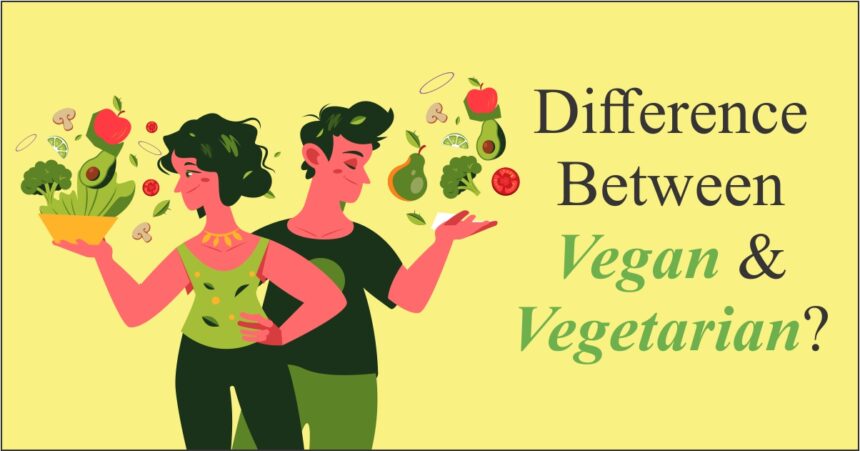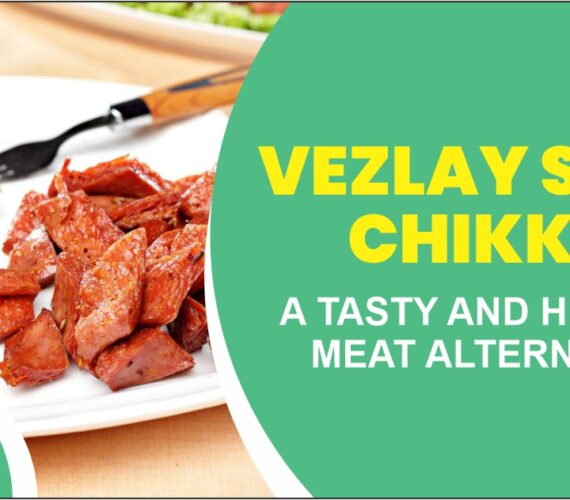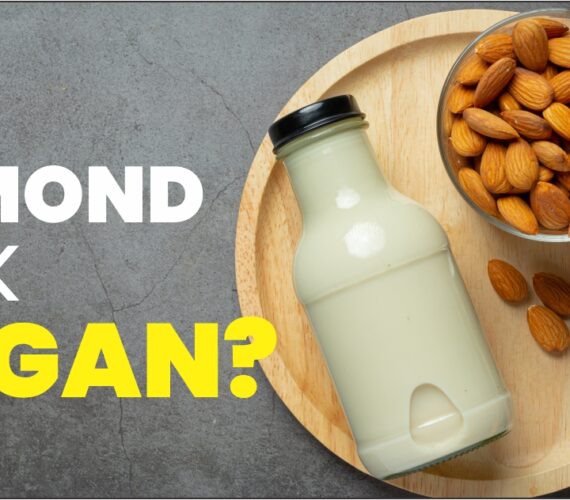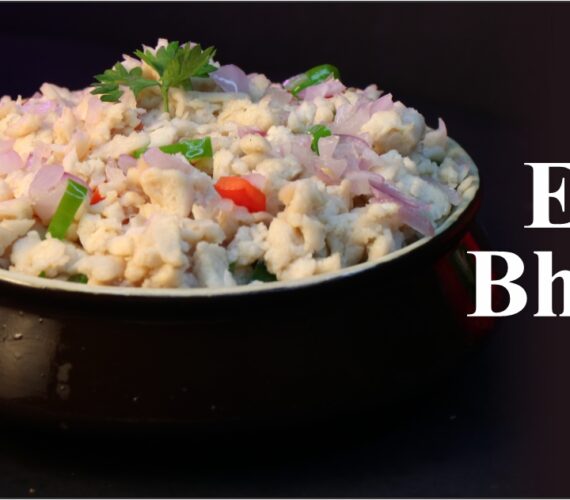Are you confused with the choices in your diet? Are you striving to find a balance between ethical considerations and personal well-being?
If so, you’re not alone.
Have you ever wondered about the increasing significance of going vegan or vegetarian in today’s food landscape? It’s a topic that goes beyond mere sustenance and holds compelling potential. By understanding the differences, you can make informed choices aligned with your values and wellness goals.
This blog will explore the difference between veganism and vegetarianism. By the end, you will gain a deep understanding of these dietary practices, empowering you to make well-informed choices aligned with your beliefs while considering compassion and mindfulness.
Let’s get started!
What is a Vegan Diet?
A vegan diet involves food items excluding all animal-derived products and prioritizing plant-based foods. By embracing this lifestyle, you align yourself with ethical values, environmental concerns, and health benefits. It promotes compassion towards animals and a sustainable lifestyle.
While vegetarians may still consume dairy products and eggs, vegans go one step further by eliminating all animal-based foods. This means no meat, fish, dairy, eggs, honey, and even gelatin.
In terms of diet, vegan people often opt for consuming a wide range of foods. Why? Because these foods provide not only ample nutrients but also come packed with fiber and antioxidants, promoting overall health and well-being.
Vegans don’t use anything made from animals, not just in their food but in other parts of their lives as well. This means not eating any meat, fish, fowl, dairy, eggs, or honey. It’s a promise to stop using animals in all kinds of ways.
In a vegan diet, you can enjoy a delicious range of plant-based foods that provide essential nutrients. Here are some popular vegan food items:
- Lentils: Provides you with protein and fiber.
- Quinoa: Good source of protein and essential amino acids.
- Chickpeas: Can be used to make hummus or roasted for a crunchy snack.
- Avocado: Creamy and nutritious, perfect for salads or sandwiches.
- Coconut milk: A dairy milk alternative for cooking and baking.
- Chickpea flour: Used in gluten-free baking and making savory dishes.
- Vegan cheese: Dairy-free alternative made from nuts or soy.
- Seitan: A high-protein wheat gluten meat substitute.
What is a Vegetarian Diet?
A vegetarian diet consists of a wholesome eating pattern that excludes meat and fish. However, it still encompasses a wide variety of plant-based foods. Additionally, some individuals may include dairy products and eggs in their dietary choices.
If you’re looking to focus on a diet that promotes health, environmental sustainability, and ethical considerations, incorporating fruits, vegetables, grains, legumes, nuts, and seeds as your primary food choices is a popular option among vegetarians.
Vegetarianism, on the other hand, means not eating meat. However, many vegans eat cheese and eggs. The amount of animal products that different types of vegetarians eat varies.
Consider incorporating these mouth-watering vegetarian food items into your meals.
- Paneer: A popular Indian cheese used in curries and snacks.
- Eggplant: Also known as aubergine, it’s great for grilling or roasting.
- Lentil Soup: A hearty and nutritious soup made from various lentils.
- Zucchini: Versatile vegetable used in stir-fries, salads, and pasta dishes.
- Pesto Pasta: Pasta dressed with basil, pine nuts, garlic, and olive oil.
- Falafel: Deep-fried chickpea or bean balls, often served in pita bread.
- Veggie Sushi: Sushi rolls filled with cucumber, avocado, and other veggies.
- Greek Salad: A refreshing salad with tomatoes, cucumbers, olives, and feta.
Key Differences Between Vegan and Vegetarian Diets
To understand vegan and vegetarian diets better, it’s essential to grasp the key differences between them. This knowledge will empower you to make informed choices in line with your values and health goals.
Let’s explore the pivotal differences between vegan and vegetarian diets:
Weight Loss
Looking to shed those extra pounds? Both vegan and vegetarian diets can help, but there are some important differences to consider.
By adopting a vegan diet, you’ll naturally reduce calorie intake and limit saturated fat consumption as animal-based products are completely eliminated. Incorporating nutrient-dense plant-based foods such as fruits, vegetables, whole grains, and legumes not only supports weight loss efforts.
On the other hand, vegetarians may include dairy and eggs in their diet, potentially leading to a slightly higher caloric intake.
To achieve sustainable weight loss and improved health, it is important for you to focus on consuming whole, unprocessed foods. Regardless of your dietary choice, this key factor is crucial in attaining your desired goals.
Muscle Gain and Strength
Concerned about building muscle on a plant-based diet?
Fear not!
Both vegans and vegetarians can gain muscle effectively by selecting the right foods.
Did you know that while animal-based proteins are considered complete, providing all essential amino acids, plant-based sources can also meet your protein needs when combined wisely?
If you’re vegan, you have protein-rich options like tofu, tempeh, quinoa, and beans. As a vegetarian, you have the added advantage of dairy and eggs.
To build muscle and strength, it’s important for you to remember the following: regular exercise, adequate protein intake, and a balanced diet. These key factors work together harmoniously towards your fitness.
Nutritional Adequacy
A well-thought-out vegan or vegetarian diet has the potential to fulfill your nutritional requirements. Nevertheless, certain nutrients demand extra attention.
Do you follow a vegan diet? If so, it’s important to make sure you get enough vitamin B12. This nutrient is mainly found in animal products, but don’t worry! You can also benefit from fortified foods or supplements.
Vegetarians, however, have an advantage. Dairy and eggs serve as excellent sources of protein, calcium, and certain vitamins.
Both diets, when carefully planned, can supply vital nutrients such as fiber, vitamins, minerals, and antioxidants.
Environmental Impact
Have you ever considered the growing significance of environmental impact when it comes to our food choices? It’s becoming a crucial factor for many individuals.
Choosing a vegan diet can make a positive impact on the environment. By excluding all animal products, vegans contribute to reducing greenhouse gas emissions and preserving water resources. In fact, vegan diets tend to have a lower carbon footprint and require less water compared to vegetarian diets.
Both diets, however, significantly reduce the environmental impact when compared to omnivorous diets. This positive difference contributes greatly to the fight against climate change.
Ethical Considerations
Do you ever wonder why some people choose to follow vegan or vegetarian diets? Often, ethical considerations are the driving force behind these dietary choices.
Vegans, in particular, embrace a strong commitment to animal welfare and firmly believe that animals should not be exploited for human consumption. As a result, they not only avoid eating meat but also refrain from consuming dairy products, eggs, honey, and any other items derived from animals.
Vegetarians, on the other hand, have a range of reasons for their dietary choices. These can include ethical concerns as well as personal health benefits. While they avoid consuming meat, they may still consume dairy products, eggs, or other animal-derived items.
Health Implications
Both vegan and vegetarian diets offer numerous health benefits. Research indicates that adopting plant-based eating habits can lower the risk of heart disease, decrease blood pressure levels, and enhance overall cardiovascular well-being.
Furthermore, incorporating more plant-based foods into your diet can offer several benefits. These diets are known for their high fiber content, which aids in proper digestion and helps regulate blood sugar levels. This makes them particularly advantageous for managing diabetes.
Incorporating a wide range of fruits, vegetables, and whole grains can benefit your overall health and well-being. Both diets offer these nutritious options to support better overall wellness.
Wrapping It Up
Determining the “best” diet between vegan and vegetarian largely depends on individual preferences, values, and health goals. Each diet offers its own set of benefits that is helpful for different types of people.
If you’re someone deeply committed to animal welfare and seeking to minimize your environmental impact, a vegan diet may be the right choice for you. By excluding all animal products, you can actively contribute to reducing greenhouse gas emissions and conserving natural resources.
If you’re looking for a more flexible approach that supports ethical eating and aligns with your personal health goals, consider adopting a vegetarian diet. This choice offers additional sources of protein, calcium, and specific vitamins by including dairy and eggs.
When it comes to finding the best diet for you, numerous factors come into play. Your individual values, ethical considerations, health requirements, and even cultural influences will all contribute to your ideal dietary choice. The key is to approach your decision with balance and mindfulness, regardless of which diet you choose.

Egg Consumption
Eggs form another dividing line between these dietary lifestyles. Vegans eliminate eggs from their diet due to their animal origin. Vegetarians, however, might include eggs, depending on their specific type.
Challenges and Considerations in Both Lifestyles
Vegans and vegetarians might encounter challenges such as dining out, label reading, and nutrient balance. However, resources, online communities, and increasing awareness have made overcoming these challenges easier.
Milk and Dairy Products
Vegans avoid all forms of dairy products, including milk, cheese, and yogurt. In contrast, some vegetarians consume these products, making dairy a defining factor in differentiating the two diets. This distinction can be attributed to varying beliefs and concerns about animal welfare, health, and sustainability.
Dietary Restrictions
The primary distinction between the two diets lies in the scope of dietary restrictions. While vegans avoid all animal products, vegetarians only eliminate meat while often still incorporating animal-derived products into their meals.
Exclusion of Animal Products
Vegans take a more comprehensive approach by completely excluding animal products due to ethical, health, and environmental reasons. This includes avoiding hidden animal ingredients in processed foods and choosing alternatives like plant-based milk and tofu.
Read Also :- Disadvantages of Eating Non-Veg Food
Health Considerations
Both diets can offer health benefits when approached mindfully. Vegans may need to pay closer attention to nutrients like vitamin B12, iron, and omega-3 fatty acids, as these are more commonly found in animal products. Vegetarians, by including dairy and eggs, might find it easier to meet certain nutritional needs.
Environmental Impact
Vegans often cite environmental concerns as a driving force behind their dietary choice. Animal agriculture is a significant contributor to greenhouse gas emissions and deforestation. Choosing plant-based options can help reduce one’s carbon footprint.
Ethical and Moral Beliefs
Vegans commonly follow this lifestyle due to strong ethical beliefs about animal rights. They advocate for the prevention of animal suffering and exploitation, while some vegetarians may be motivated more by health reasons than ethical concerns.
Common Misconceptions
There can be misconceptions about both diets. Some assume that vegetarians eat fish or chicken, which is incorrect. Similarly, not all vegans are necessarily health-conscious, as there are plenty of vegan junk food options available.
Read Also :- Top 15 misconception about vegan food
Nutritional Concerns
Both diets require careful attention to nutrition. Vegans need to ensure they get sufficient protein, vitamin B12, and iron from plant-based sources. Vegetarians should also focus on these nutrients while also keeping an eye on calcium intake.
Meal Planning and Recipes
Both vegans and vegetarians have a wide range of delicious meal options available. From hearty lentil stews to innovative plant-based burgers, the culinary possibilities are endless.
Eating Out
Finding suitable options while eating out can sometimes be a challenge, but as plant-based diets gain popularity, more restaurants are offering diverse choices for both vegans and vegetarians.
Social and Cultural Aspects
Vegans and vegetarians might face questions and misconceptions from family and friends who are less familiar with these diets. However, with open communication, it’s possible to navigate social situations with ease.
Making the Choice
Ultimately, whether you choose to follow a vegan or vegetarian diet depends on your personal beliefs, health considerations, and environmental concerns. Both choices can positively impact your health and the planet when done thoughtfully.
Vegan Vs Vegetairan
To better understand the distinctions between veganism and vegetarianism, let’s break down their key differences in a comparative table:
| Aspect | Veganism | Vegetarianism |
|---|---|---|
| Definition | Avoidance of all animal products, including meat, dairy, eggs, and honey. | Exclusion of meat, but inclusion of animal byproducts like dairy and eggs. |
| Scope | Extends beyond diet to lifestyle; avoids animal-derived products in all aspects of life. | Primarily a dietary choice without the comprehensive lifestyle restrictions. |
| Animal Products | Completely avoided in food and non-food products (clothing, cosmetics, etc.). | Avoided in food, but some animal products may be used in other areas. |
| Health Focus | May require close attention to nutrients like vitamin B12, iron, and omega-3 fatty acids. | Easier to meet certain nutritional needs due to inclusion of dairy and eggs. |
| Environmental Impact | Often motivated by ethical and environmental concerns; aims to reduce carbon footprint. | May be motivated by health, ethics, or a combination of both; still has a lower environmental impact compared to omnivorous diets. |
| Ethical Beliefs | Strongly driven by animal rights and anti-exploitation beliefs. | May be motivated more by personal health reasons rather than ethical concerns. |
| Misconceptions | May be misconceived as an overly restrictive diet; not all vegans are health-focused. | Misunderstood as including fish or chicken; not all vegetarians are health-conscious. |
| Nutrient Consideration | Need to ensure sufficient protein, vitamin B12, iron, and calcium from plant-based sources. | Similar considerations as vegans but with potentially easier access to certain nutrients. |
| Meal Diversity | Offers a diverse range of plant-based meals, often involving creative substitutions. | Can also enjoy diverse meals without meat while still incorporating dairy and eggs. |
| Eating Out | Finding options while eating out may require more effort due to comprehensive restrictions. | Easier to find suitable options, as more restaurants offer vegetarian choices. |
| Social Interactions | May face misconceptions and questions about lifestyle and dietary choices. | Similar challenges of explaining dietary choices to friends and family. |
| Decision Factors | Often influenced by strong ethical beliefs, animal rights advocacy, and environmental concerns. | Determined by individual health considerations, personal beliefs, and environmental consciousness. |
Both veganism and vegetarianism contribute to a more conscious and sustainable way of living. By understanding the differences outlined in the table, you can make an informed decision that aligns with your values and lifestyle choices.
Conclusion
In the quest for sustainable and conscious living, veganism and vegetarianism stand out as viable options. By embracing these diets, you contribute to reducing animal exploitation, promoting environmental sustainability, and potentially enhancing your own well-being.
Frequently Asked Questions
Is a vegan diet more difficult to follow than a vegetarian one?
- Both diets come with their own challenges, but with proper planning, they can be followed successfully.
Can I get enough protein from a plant-based diet?
- Yes, plant-based sources like beans, lentils, tofu, and quinoa provide ample protein.
Are there health risks associated with these diets?
- When well-balanced, both diets can be healthy. However, deficiencies can occur if not properly planned.
Is veganism/vegetarianism suitable for children?
- Yes, but it’s crucial to ensure they receive all necessary nutrients for growth and development.
How can I ensure I’m meeting my nutritional needs on a vegan/vegetarian diet?
- Consulting a registered dietitian can help you create a balanced meal plan that meets your nutritional requirements.
Sources
- NHS Inform – Vegetarian and Vegan Diets – Food and Nutrition
- Healthline – Vegan Vs Vegetarian – What’s the Difference?
- Healthline – The Vegan Diet — a Complete Guide for Beginners.
- Medical News Today – Vegan Vs. Vegetarian: Differences, Benefits, and Which Is Healthier
- PETA – What’s the Difference Between Vegetarian and Vegan?
- Diffen – Vegan Vs Vegetarian – Difference and Comparison
- Well Versed – Vegan Vs Vegetarian: Same or Different?
- @LiveScience – What’s the Difference Between Veganism Vs Vegetarianism?
- Insider – What’s the Difference Between Vegan and Vegetarian? Comparing the Health Benefits and Risks
- WebMD – Vegan Diet: Foods, Benefits and More.
- Verywell Fit – What Is the Vegetarian Diet?








